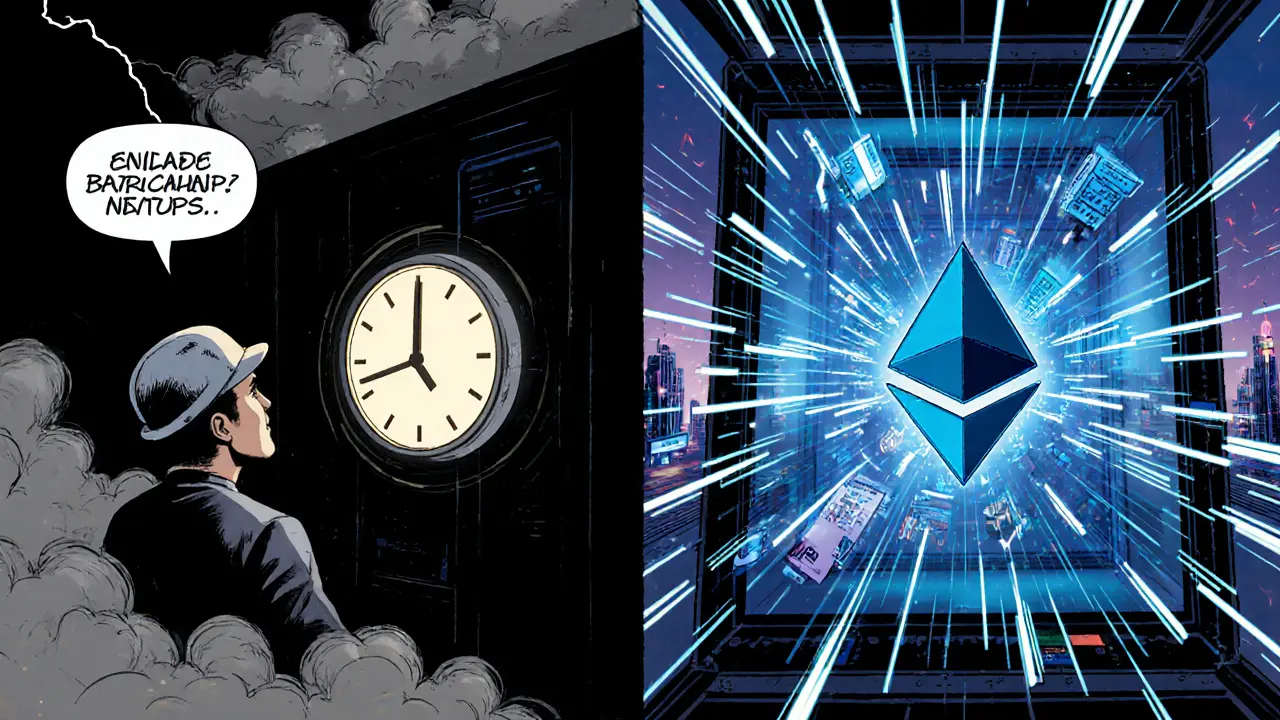Block Time Comparison: How Different Blockchains Handle Transaction Speed
When you send crypto, block time, the average time it takes for a blockchain to add a new block of transactions to its ledger. It's not just a number—it’s what decides if your swap finishes in seconds or minutes. Bitcoin’s block time is about 10 minutes. Ethereum’s? Around 12 seconds. That’s a 50x difference. And it’s not just about speed—it affects fees, security, and whether your DeFi trade even works.
Some chains like Solana and Polygon cut block time even further—under a second—because they’re built for speed over decentralization. Others, like Bitcoin, stick with longer blocks to make attacks harder. Ethereum, a major blockchain known for smart contracts and high transaction volume, changed its block time after the Merge, balancing efficiency with security. Meanwhile, Bitcoin, the original blockchain designed for trustless value transfer stays slow on purpose. Slower blocks mean fewer orphaned blocks, less network strain, and stronger finality. But if you’re swapping tokens or paying for gas on a dApp, you care more about how fast your transaction clears than how secure the network is.
Block time isn’t the whole story. You also need to look at block size, network congestion, and gas fees. A chain with a 3-second block time might still feel slow if every block is full. That’s why Ethereum users sometimes wait longer than 12 seconds during peak hours. And chains like BNB Chain or Avalanche, which claim fast block times, often have lower decentralization to make it happen. There’s no free lunch. The faster the block time, the more you sacrifice in terms of security or node diversity.
What you’ll find in the posts below isn’t just a list of numbers. It’s a real look at how block time shapes everything—from how exchanges handle withdrawals, to why some coins get hacked through 51% attacks, to why certain airdrops take hours to reflect in your wallet. You’ll see how blockchain security, transaction speed, and user experience are all tied to this one metric. Whether you’re trading, staking, or just trying to send ETH without waiting 15 minutes, understanding block time comparison gives you real control over your crypto experience.
Bitcoin takes 10 minutes per block; Ethereum takes 12 seconds. This difference isn't an accident-it defines how each network is used. Learn why speed, security, and real-world use cases split them apart.

